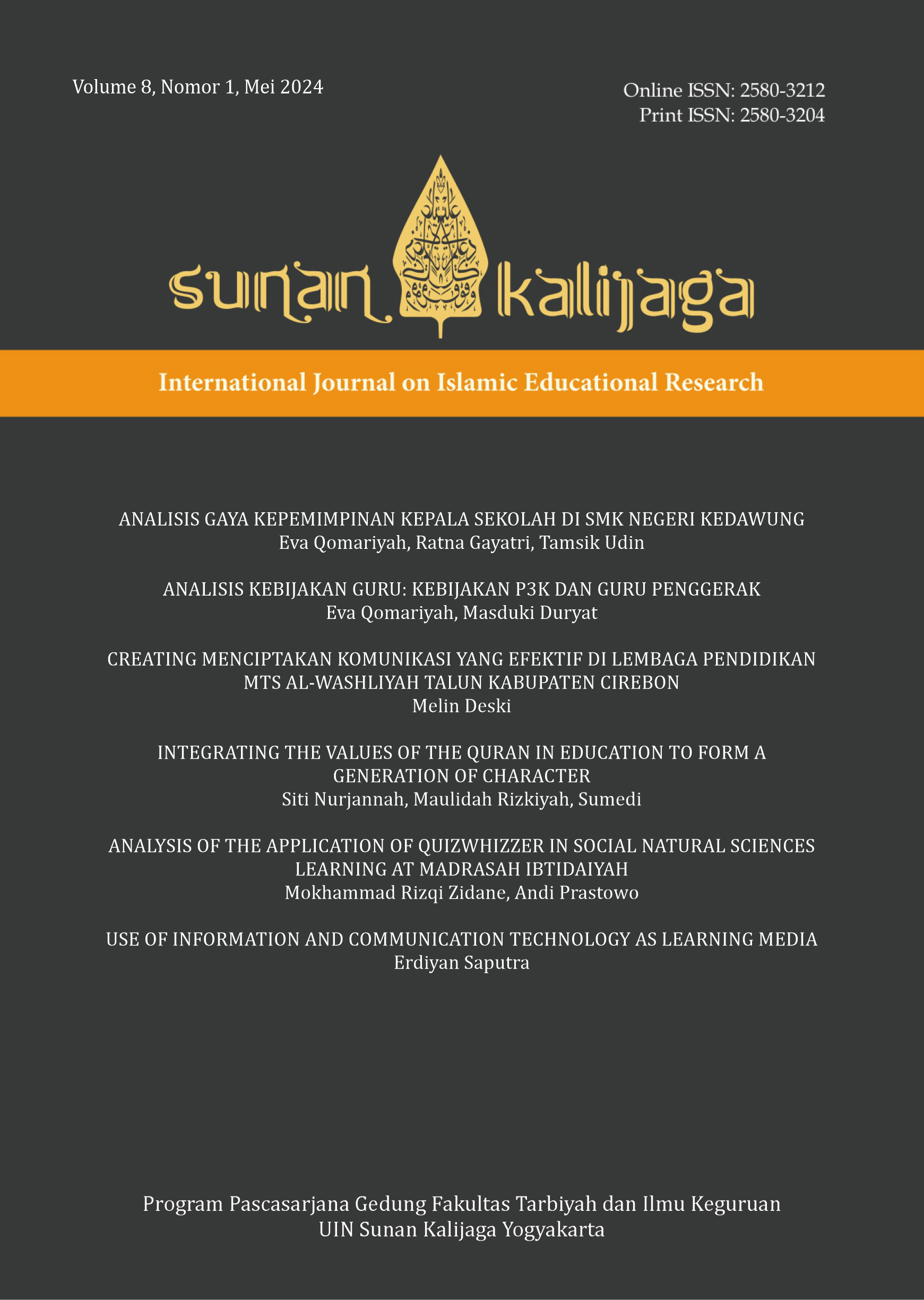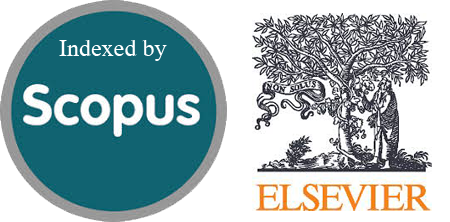Analisis Kebijakan Guru: Kebijakan P3K dan Guru Penggerak
DOI:
https://doi.org/10.14421/skijier.2024.81.08Keywords:
Analisis Kebijakan, Guru PPPK, Guru PenggerakAbstract
This article discusses three main aspects of education policy in Indonesia: education policy analysis, Government Employee with Work Agreement (PPPK) policy, and Teacher Mobilization policy. Education policy analysis is an intellectual and practical process that focuses on the creation, critical assessment, and communication of knowledge related to education policy to resolve various problems. Teachers have an important role in developing students' cognitive, affective and psychomotor aspects and function as facilitators, processors and educational planners. The PPPK policy aims to improve the welfare of honorary teachers by raising salary standards and providing more secure job status. However, this policy also has negative impacts such as a shortage of students in private schools due to the transfer of teachers to state schools. The Teacher Mobilization Program is designed to improve teacher competency through training that focuses on 21st century learning and Pancasila education. Mobilizing Teachers are expected to be agents of change in the education ecosystem, promoting innovation, creativity and student-centered learning. Through analysis of education policies, PPPK policies, and the Teacher Mobilization program, this article highlights the important role of teachers in education as well as the challenges and opportunities faced in efforts to improve the quality of education in Indonesia.
Downloads
References
Damanik, Nuraini Karim, Avif Ariyanto, and Farid Setiawan. “Kebijakan Penerimaan PPPK Guru Dan Dampak Terhadap Pendidikan Swasta.” Masaliq 2, no. 3 (2022): 354–360.
Dunn, William N. Public Policy Analysis: An Integrated Approach. 5th ed. Boston: Pearson Education, 2012.
Dyas, W. “Pendidikan Guru.” Jurnal Prints 2, no. 1 (2021): 123.
Ghazali, Irwan, Zakki Teguh Wibawa, Muhammad Lutfi Nur Fauzi, and Syifa Nur Anggraini. “Analisis Kebijakan Pendiidkan.” At-Tajdid : Jurnal Pendidikan dan Pemikiran Islam 5, no. 2 (2022): 67.
Hamruni. Konsep Edutainment Dalam Pendidikan Islam. Yogyakarta: Bidang Akademik UIN Sunan Kalijaga, 2008.
Kartadinata, S. Isu-Isu Pendidikan: Antara Harapan Dan Kenyataan. Bandung: UPI Press, 2010.
Kosim, Muhammad. Pendidikan Guru Agama Di Indonesia: Pergumulan Dan Problema Kebijakan 1948-2011. Bantul: Pustaka Nusantara, 2012.
Mulyasa, H.E. Menjadi Guru Penggerak Merdeka Belajar. Jawa Timur: Bumi Aksara, 2020.
La Ode, Muhammad Elwan. . “. Implementasi Perda Kota Kendari No. 15 Tahun 2003 Tentang Partisipasi Masyarakat Dalam Perumusan Kebijakan Daerah Pada Penyusunan Anggaran Pendapatan Belanja Daerah Tahun 2010.” Universitas Gadjah Mada, 2011.
———. “ANALISIS KEBIJAKAN PAJAK DAERAH SEBAGAI SUMBER PENDAPATAN ASLI DAERAH KABUPATEN KOLAKA TIMUR DI ERA OTONOMI” (2020).
Satriawan, W., Santika, I. D., Naim. “Guru Penggerak Dan Transformasi Sekolah. Al-Idarah: Jurnal Kependidikan Islam.” Jurnal Kependidikan Islam 11, no. 1 (2021): 1–12.
Sibagariang, D., Sihotang, H., Murniarti, E., & Indonesia, U. K. “Prean Guru Penggerak Dala Pendidikan.” Dinamika Pendidikan 14, no. 2 (2021): 88–89.
Suhendro, Eko, Muhammad Nurul Mubin, and Anita Saharani. “Evaluating the Impact of Professional Development on STEAM Education Competency in the Industrial Revolution 5.0 Era.” Golden Age: Jurnal Ilmiah Tumbuh Kembang Anak Usia Dini 9, no. 1` (March 31, 2024): 72–81. https://ejournal.uin-suka.ac.id/tarbiyah/goldenage/article/view/8305.
Utami, Sherin Dwi. Utami, Lutfi Wahyu. Setiawan, Farid. Lestari, Salsa Warda. “TERSEJAHTERANYA GURU HONORERDENGAN ADANYA KEBIJAKAN P3K.” YASIN; Jurnal Pendidikan dan sosial budaya 3, no. 4 (2023): 689–690.










